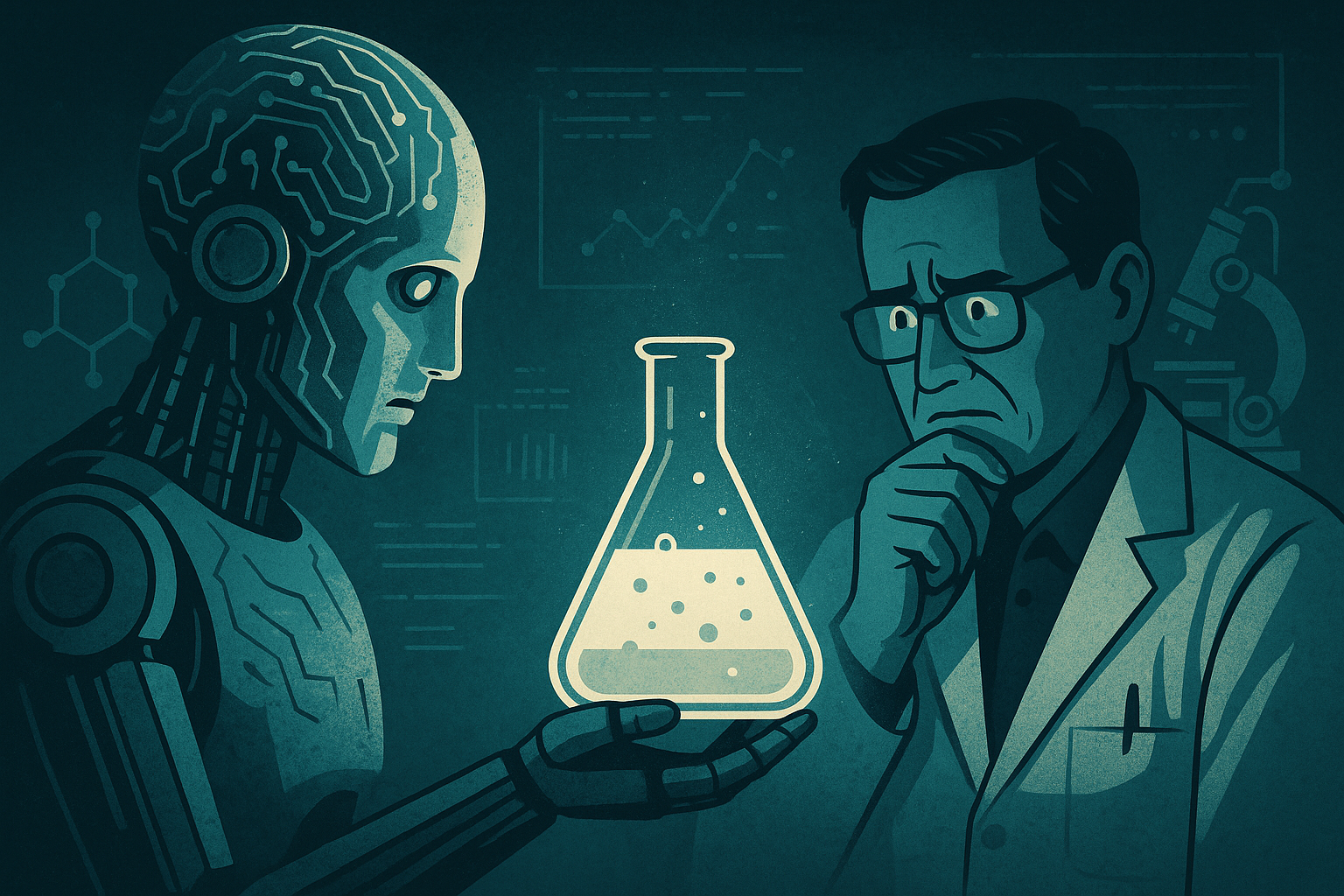

The ability of these technologies to process massive amounts of information, identify patterns that previously remained hidden, and accelerate complex processes is opening a new era in research, especially in areas where materials exploration, multiscale modelling, and data analysis are key elements for progress.
However, this potential only makes sense when it is integrated rationally, ethically, and coherently into daily scientific activity, ensuring that AI always acts as a support tool and never as an indiscriminate substitute for research work.
In this context, at CIC energiGUNE we work to understand and harness the true scope of AI, both in its analytical dimension and in its ability to facilitate and structure complex processes. For example, the automated analysis of experimental data — capable of cross-checking information from multiple tests and obtaining correlations that would hardly emerge from manual analysis — is enabling more precise, faster, and results-oriented research.
What once required weeks of manual interpretation can now be addressed in a matter of hours, freeing valuable time for researchers to focus on the critical design of new hypotheses and on high-value scientific decision-making.
A similar transformation is taking place in the field of materials discovery and design. AI is enabling the exploration of vast chemical spaces, the identification of promising candidates, and the prediction of properties even before they are synthesized.
This approach does not replace experimentation, but it does help guide, focus, and prioritize it — something particularly relevant in sectors such as energy storage, where the identification of new chemistries, structures, and compositions requires a careful balance between simulation, scientific intuition, and experimental verification. In this way, AI becomes a facilitator that increases the probability of success, reduces the number of iterations needed in the lab, and accelerates the path towards more competitive materials.
The impact of these tools is also evident in tasks related to the management of scientific information, literature review, or preparation of documentation. Although these functions may be considered secondary to experimental activity, in reality they significantly influence the overall rhythm and efficiency of research.
The ability to analyze large databases, identify trends, or extract relevant information in an automated way not only improves the capacity to follow scientific literature, but also helps structure thinking, clarify knowledge gaps, and orient research efforts towards areas with greater added value.
Despite this potential, the advance of AI requires constant critical reflection.
One of the most evident limitations is the generation of incorrect or unverifiable information, especially in generative models capable of producing plausible but imprecise responses. In research — where accuracy is essential — this requires rigorous validation of any AI-generated content and the systematic checking of data, references, or conclusions.
There is also the risk that excessive use of AI may undermine the researcher’s critical judgment if it is used as a substitute — rather than support — for scientific reasoning. Creativity and scientific intuition, fundamental components of any disruptive advance, cannot be delegated to algorithmic models.
Likewise, reliance on external tools may affect the protection of sensitive information, especially when research takes place within industrial projects, international collaborations, or strategic initiatives requiring high levels of confidentiality.
Added to this is the risk of homogenization of scientific work when AI is used indiscriminately, generating texts, ideas, or proposals that follow overly uniform patterns. It is therefore essential to maintain an appropriate balance between technological support and independent thinking, ensuring that AI boosts scientific activity without limiting its diversity or intellectual depth.
For AI to become a true ally of scientific research, it is essential to move toward a model of use based on responsibility, methodological rigor, and ethical clarity. The value of these emerging tools lies not only in their technical capabilities, but in how they are integrated into the research ecosystem — how they complement human creativity and strengthen, rather than replace, scientific excellence.
This implies always validating any AI-generated information, ensuring that its use takes place in secure and protected environments, and maintaining the researcher’s critical autonomy so that technology does not dictate the direction or interpretation of scientific activity.
At CIC energiGUNE, we are advancing in precisely this direction. Our commitment is to leverage AI as a resource capable of freeing time, enhancing scientific interpretation, and accelerating the arrival of new results — but always with the necessary guarantees for responsible use. Therefore, we have developed specific protocols and internal guidelines that guide its use, establish clear validation criteria, and ensure that any AI-generated information is reviewed and verified before being integrated into research, communication, or documentation processes.
This approach not only guarantees scientific quality and integrity, but also strengthens the competitiveness of our work, allowing AI to serve as a strategic asset that accompanies and complements research talent without replacing it. In a context of constant technological evolution, having stable criteria and a clear direction makes it possible to benefit from AI without compromising the essential principles of research.
At CIC energiGUNE, we will continue working to integrate AI coherently, safely, and aligned with the values that guide our scientific activity. We understand this technology as one more element within a broad vision of research: a valuable resource, as long as it is used responsibly and wisely, and an ally that — when well managed — can multiply the impact of our work and provide a sustainable competitive advantage over time.

If you want to know the latest trends in energy storage and new developments in research, subscribe.

If you want to join a top-level team, collaborate with specialists in multiple disciplines or tell us about your concerns, don't think twice...